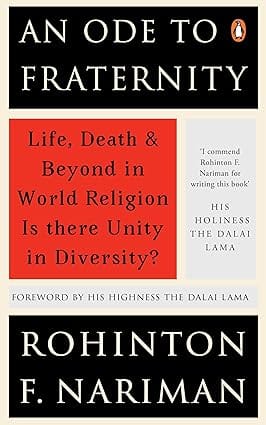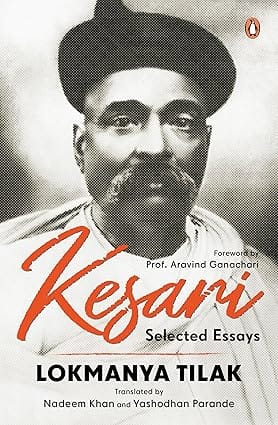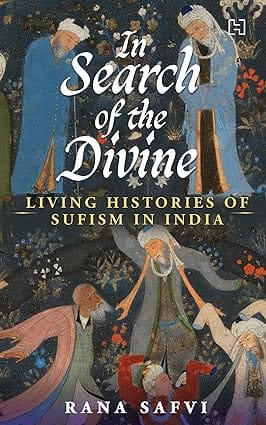- Contemporary Fiction
- Contemporary Fiction
- Children
- Children
- Comics & Graphic Novels
- Comics & Graphic Novels
- Non-Fiction
- Non-Fiction
- Fiction
- Fiction
Why does India’s police force, created under British rule, still echo the priorities of a bygone empire? And what is it about this institution, tasked with maintaining the law and order, that has led to a normalization of daily violence?
These are the key questions that inform the analyses in this volume by lawyers, academics and activists. Divided into four broad sections, it begins by looking at the origins of the modern police force in the 1860s and demonstrates their role in maintaining socio-cultural, economic and political hierarchies even in post-Independence India. The second section explores how the law and legal infrastructure, as well as the bureaucracy in India, work to effectively facilitate police violence and to further marginalize and criminalize certain groups, like lower castes and Muslims. The penultimate section complicates this picture, examining how police violence is shaped by historical ambivalence towards democracy, the personal and systemic dynamics between police personnel and the accused, and the fraught identity of police in conflict zones like Kashmir, where authority is both granted and withheld by the state.
The final section contains interviews of and reflections by prominent critics of police violence, including former Haryana DGP V.N. Rai and Abdul Wahid Shaikh, falsely accused of involvement in the 2006 Mumbai blasts.
Questioning its foundational purpose and envisioning pathways to accountability and reform, Policing and Violence in India ignites a long-overdue conversation about the nature of policing in India.
About the Author
Deana Heath is Professor of Indian and Colonial History at the University of Liverpool. She has written widely on issues relating to policing and violence in colonial India, particularly on torture and sexual violence. Her latest book, Colonial Terror: Torture and State Violence in Colonial India, was published by Oxford University Press in 2021.
Jinee Lokaneeta is Professor in Political Science and International Relations at Drew University, New Jersey. She is the author of The Truth Machines: Policing, Violence, and Scientific Interrogations in India, published in 2020 by the University of Michigan Press and Orient Blackswan, and Transnational Torture: Law, Violence, and State Power in the United States and India, published by New York University Press in 2011 and Orient Blackswan in 2012.
Policing And Violence In India Colonial Legacies And Contemporary Realities
SIZE GUIDE
- ISBN: 9789363367531
- Author: Deana Heath Jinee Lokaneeta
- Publisher: Speaking Tiger
- Pages: 368
- Format: Hardback
Book Description
Why does India’s police force, created under British rule, still echo the priorities of a bygone empire? And what is it about this institution, tasked with maintaining the law and order, that has led to a normalization of daily violence?
These are the key questions that inform the analyses in this volume by lawyers, academics and activists. Divided into four broad sections, it begins by looking at the origins of the modern police force in the 1860s and demonstrates their role in maintaining socio-cultural, economic and political hierarchies even in post-Independence India. The second section explores how the law and legal infrastructure, as well as the bureaucracy in India, work to effectively facilitate police violence and to further marginalize and criminalize certain groups, like lower castes and Muslims. The penultimate section complicates this picture, examining how police violence is shaped by historical ambivalence towards democracy, the personal and systemic dynamics between police personnel and the accused, and the fraught identity of police in conflict zones like Kashmir, where authority is both granted and withheld by the state.
The final section contains interviews of and reflections by prominent critics of police violence, including former Haryana DGP V.N. Rai and Abdul Wahid Shaikh, falsely accused of involvement in the 2006 Mumbai blasts.
Questioning its foundational purpose and envisioning pathways to accountability and reform, Policing and Violence in India ignites a long-overdue conversation about the nature of policing in India.
About the Author
Deana Heath is Professor of Indian and Colonial History at the University of Liverpool. She has written widely on issues relating to policing and violence in colonial India, particularly on torture and sexual violence. Her latest book, Colonial Terror: Torture and State Violence in Colonial India, was published by Oxford University Press in 2021.
Jinee Lokaneeta is Professor in Political Science and International Relations at Drew University, New Jersey. She is the author of The Truth Machines: Policing, Violence, and Scientific Interrogations in India, published in 2020 by the University of Michigan Press and Orient Blackswan, and Transnational Torture: Law, Violence, and State Power in the United States and India, published by New York University Press in 2011 and Orient Blackswan in 2012.
User reviews
NEWSLETTER
Subscribe to get Email Updates!
Thanks for subscribing.
Your response has been recorded.

India's Iconic & Independent Book Store offering a vast selection of books across a variety of genres Since 1978.
"We Believe In The Power of Books" Our mission is to make books accessible to everyone, and to cultivate a culture of reading and learning. We strive to provide a wide range of books, from classic literature, sci-fi and fantasy, to graphic novels, biographies and self-help books, so that everyone can find something to read.
Whether you’re looking for your next great read, a gift for someone special, or just browsing, Midland is here to make your book-buying experience easy and enjoyable.
We are shipping pan India and across the world.
For Bulk Order / Corporate Gifting
 +91 9818282497 |
+91 9818282497 |  [email protected]
[email protected]
Click To Know More
INFORMATION
QUICK LINKS
ADDRESS
Shop No.20, Aurobindo Palace Market, Near Church, New Delhi













